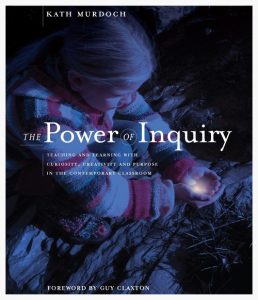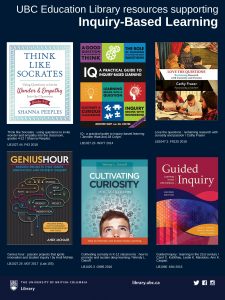Listed below are selected resources for teachers related to Inquiry-Based Learning at all grade levels.
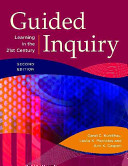 Guided inquiry: Learning in the 21st century
Guided inquiry: Learning in the 21st century
by Carol C. Kulhthau, Leslie K. Maniotes, and Ann K. Caspari.
Grades: K-12
This book presents an introduction to Guided Inquiry, providing a starting point for considering and planning an inquiry-based learning program.
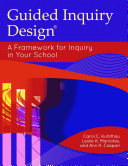 Guided inquiry design: A framework for inquiry for your school
Guided inquiry design: A framework for inquiry for your school
by Carol C. Kulhthau, Leslie K. Maniotes, and Ann K. Caspari.
Grades: K-12
The companion book to ‘Guided inquiry: Learning in the 21st century’. Provides an overview of the Guided Inquiry design framework and details the eight phases in the Guided Inquiry design process, providing examples at all levels.
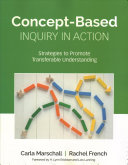 Concept-based inquiry in action: strategies to promote transferable understanding
Concept-based inquiry in action: strategies to promote transferable understanding
by Carla Marschall and Rachel French
Grades: K-12
This book provides teachers with tools and resources to organize and focus student learning around concepts and conceptual relationships that support the transfer of understanding, and helps them to implement teaching strategies that support the realization of inquiry-based learning for understanding.
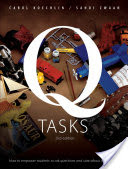 Q tasks: How to empower students to ask questions and care about the answers (2nd edition)
Q tasks: How to empower students to ask questions and care about the answers (2nd edition)
by Carol Koechlin and Sandi Zwaan
Grades: K-12
The original ‘Q Tasks’ showed teachers how to give students the tools they need to develop their own questions and build critical thinking and inquiry skills. The second edition continues to nurture and advance these crucial skills, and also offers Q-task extensions that introduce digital components that facilitate collaboration. Also available as an e-resource.
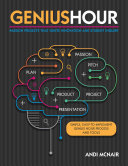 Genius hour: Passion projects that ignite innovation and student inquiry
Genius hour: Passion projects that ignite innovation and student inquiry
by Andi McNair
Grades: K-12
This book provides educators with the tools to implement genius hour, or passion projects, in the classroom. Presented through a six-step strategy, teachers will utilize the six P’s–passion, pitch, plan, project, product, and presentation–as a map for students to follow as they create, design, and carry out projects.
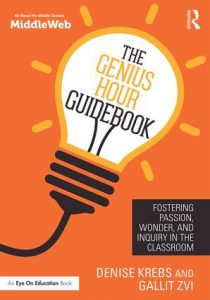 The Genius Hour guidebook: Fostering passion, wonder, and inquiry in the classroom
The Genius Hour guidebook: Fostering passion, wonder, and inquiry in the classroom
by Denise Krebs and Gallit Zvi
Grades: K-12
Genius Hour is a time when students can develop their own inquiry-based projects around their passions and take ownership of their work. This book provides suggestions for teachers to help students develop inquiry questions based on their interests, conduct research to learn more about their topic, create presentations to share their work, and present their finished product for assessment.
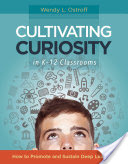 Cultivating curiosity in K-12 classrooms: How to promote and sustain deep learning
Cultivating curiosity in K-12 classrooms: How to promote and sustain deep learning
by Wendy L. Ostroff
Grades: K-12
This book describes how teachers can create a structured, student-centered environment that allows for openness and surprise, in which inquiry guides authentic learning. Ostroff shows how to foster student curiosity through exploration, novelty, and play; questioning and critical thinking; and experimenting and problem-solving.
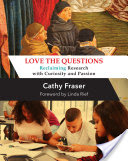 Love the questions: Reclaiming research with curiosity and passion
Love the questions: Reclaiming research with curiosity and passion
by Cathy Fraser
Grades: K-12
This book provides suggestions on how to honour students’ passions, interests, and specific questions; embrace inquiry, curiosity, and exploration; teach students to frame relevant questions throughout the research process; develop projects that include surveys, experiments, and interviews; work with school librarians as educational partners for teachers and students; and assess skills, not memorization.
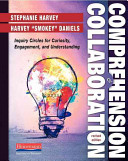 Comprehension and collaboration: inquiry circles for curiosity, engagement and understanding
Comprehension and collaboration: inquiry circles for curiosity, engagement and understanding
by Stephanie Harvey and Harvey “Smokey” Daniels
Grades: K-12
This book presents research in comprehension, collaboration, and inquiry, and gives practical suggestions on connections to inquiry structures such as makers, design thinking, genius hour, and capstone projects, as well as tips on common questions about management and accountability.
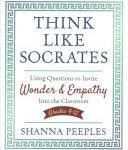 Think like Socrates: Using questions to invite wonder and empathy into the classroom, grades 4-12
Think like Socrates: Using questions to invite wonder and empathy into the classroom, grades 4-12
by Shanna Peeples
Grades: 4-12
This resource provides questions paired with sample texts; step-by-step lessons for generating and using students’ questions; lesson extensions for English language learners, special education students, and gifted and talented students; and writing suggestions, in-class debate questions, and scoring rubrics.
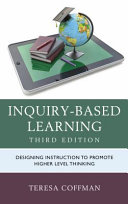 Inquiry-based learning: Designing instruction to promote higher level thinking
Inquiry-based learning: Designing instruction to promote higher level thinking
by Teresa Coffman
Grades: K-12
This third edition text explores realistic approaches and encourages reflective practice through the creation of instruction around a variety of curricular topics, to include digital citizenship, information literacy, social media, telecollaborative activities, problem-based learning, blended learning, and authentic assessments. Emphasis is placed on developing 21st-century skills within a thinking curriculum.
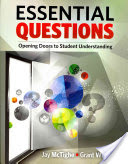 Essential questions: Opening doors to student understanding
Essential questions: Opening doors to student understanding
by Jay McTighe and Grant P. Wiggins.
Grades: K-12
The creators of the “Understanding by design” framework present ways to incorporate inquiry-based learning into the classroom.
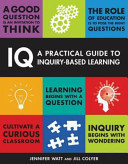 IQ: A practical guide to inquiry-based learning
IQ: A practical guide to inquiry-based learning
by Jennifer Watt and Jill Colyer
Grades: K-12
This highly visual and accessible resource explains the inquiry process and offers practical suggestions and tools for successfully implementing inquiry-based learning in the classroom.
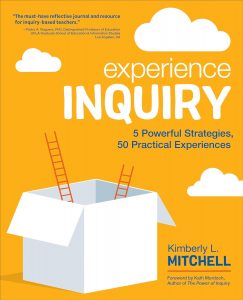 Experience inquiry: 5 powerful strategies, 50 practical experiences
Experience inquiry: 5 powerful strategies, 50 practical experiences
by Kimberly L. Mitchell
Grades: K-12
This resource offers practical examples of what inquiry looks like in the classroom; fifty practical inquiry experiences that can be used individually, with students, or in small groups of teachers; and opportunities for reflection throughout the book, including self-surveys, templates, and tools.
by Kath Murdoch
Grades: K-12
This resource is a guide to the implementation of quality inquiry practices in the contemporary classroom. Organized around ten essential questions, each chapter provides both a theoretical and a practical overview of the elements that combine to create learning environments rich in purpose and passion.
Finding More Resources
To find more resources in this area, try the following:
- Search using the General tab on the UBC Library website to look for material in all UBC Library branches.
- Search using “Search Education Resources” box in the left hand bar on the Education Library website to limit your results to physical materials in the Education Library.
- Use specific search terms, such as “inquiry based learning”, “inquiry-based learning”, or “inquiry”.
- To find lesson plans, include “lesson plans”, “lesson planning”, or “activity programs” in your search terms.
For more help with searching, please visit the Library Service Desk or e-mail ed.lib@ubc.ca.

